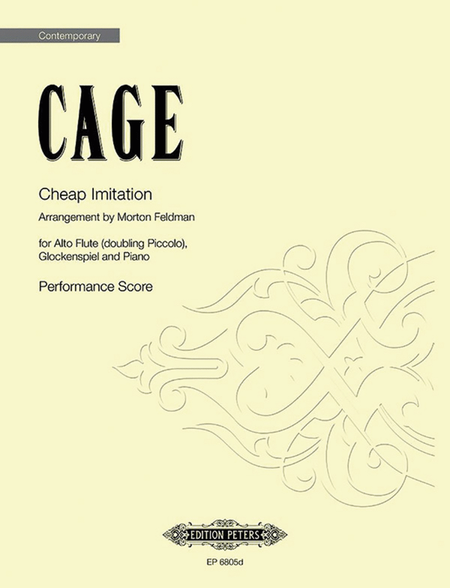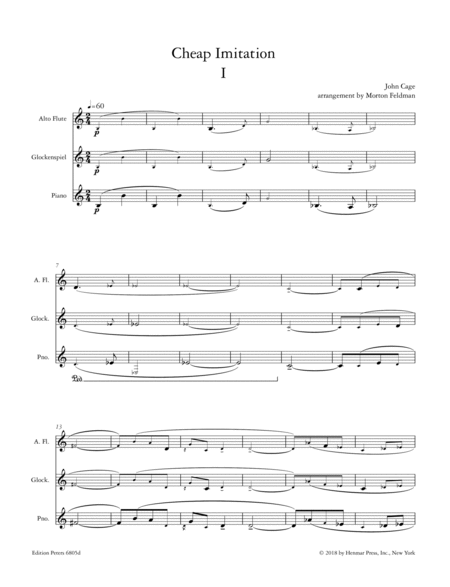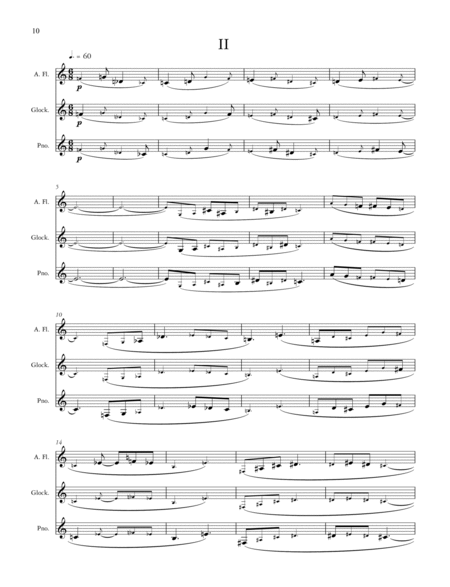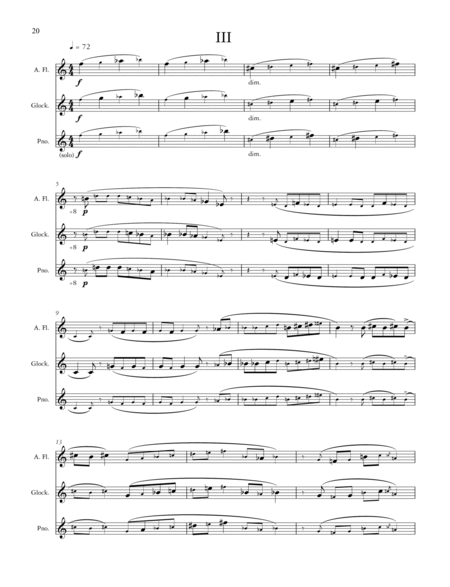Cheap Imitation (Performance Score)
Arrangement by Morton Feldman for Alto Flute (doubling Piccolo), Glockenspiel and Piano
-
Ships in 4 to 6 weeks
Details
Description
SKU: PE.EP6805D
Arrangement by Morton Feldman for Alto Flute (doubling Piccolo), Glockenspiel and Piano. Composed by John Cage. Arranged by Morton Feldman. Mixed Instruments - Miscellaneous Ensemble; Trio. Edition Peters. Contemporary. 40 pages. Edition Peters #98-EP6805D. Published by Edition Peters (PE.EP6805D).ISBN 9790300763484.
In June of 1980, Aki Takahashi was preparing to leave Buffalo, New York. Morton Feldman, knowing her reputation as a pianist specializing in new music, had invited her to be an artist in residence at the university where he taught. But now it was time for her to go back to Japan. At their last meeting, Feldman gave a musical score to Takahashi as a gift. It was a copy of John Cage's solo piano piece Cheap Imitation with annotations by Feldman. He told her that this was an instrumental version of this piece for flute, piano, and glockenspiel. He signed the title page, just under the original title:
INSTRUMENTAL VERSION (Fl, Pf, Glock)
Morton Feldman
Buffalo, N.Y. Winter 1980
Dedicated to Aki Takahashi
Four different artists were bound up in this single gesture: John Cage, Erik Satie, Morton Feldman, and Aki Takahashi. The story of this gift, a story of memory and connection, unfolds over most of the 20th century.
John Cage was always devoted to the music of Eric Satie. In 1970 Cage was supposed to create a new two-piano transcription of Satie's Socrate for a Cunningham dance, but he was unable to get permission from the publisher. Even worse, he could not even get performance rights to use the published piano-vocal score of Socrate. Cage's creative solution was to make a piano piece that maintained the exact metrical and phrase structure of Satie's Socrate, but with different notes, thus avoiding copyright issues. He called this piece Cheap Imitation. Cunningham responded by calling his dance Second Hand.
Feldman arranged Cage's piano version of Cheap Imitation for a trio of flute (doubling on alto flute and piccolo), piano, and glockenspiel. This is the same instrumentation that was used in Feldman's 1978 Why Patterns? and which (somewhat expanded) was the basis for two of his major works in the 1980s: Crippled Symmetry (1983) and For Philip Guston (1984). Feldman made his ar.




 Share
Share